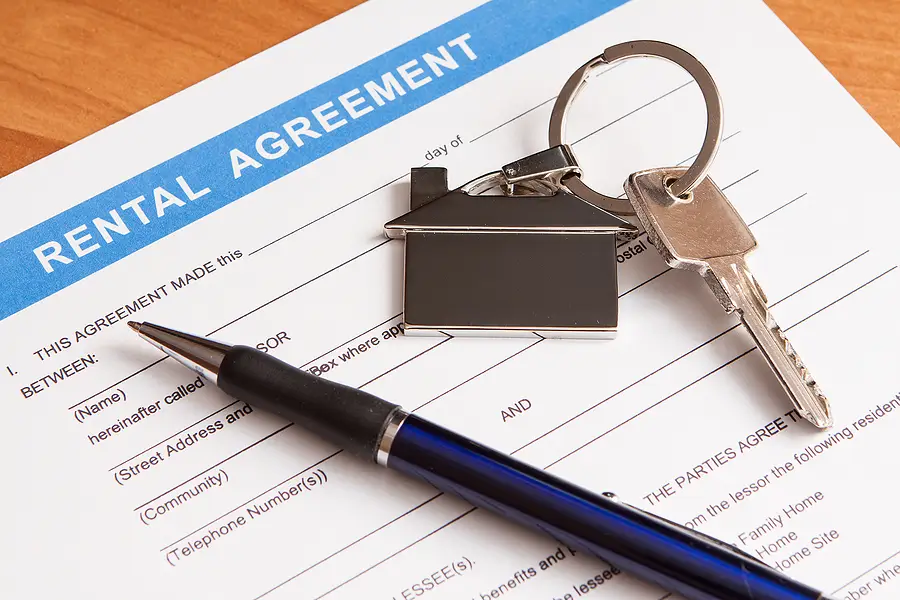Atlanta’s rental market is thriving, with new residents moving in every month for job opportunities, culture, and community. Yet with this demand comes an increase in landlord-tenant interactions and sometimes disagreements. While most relationships between landlords and tenants work well, issues often arise from misunderstandings, unclear expectations, or missing documentation.
The good news is that these disputes can almost always be prevented with better preparation and communication. By setting clear policies, responding quickly to concerns, and leveraging reliable property management systems, landlords can eliminate many of the most common problems before they start. For example, ensuring timely rent collection or responding promptly to repair requests can keep small matters from escalating into big ones.
Key Takeaways
- Security deposits are one of the most disputed issues when expectations about “damage” versus “wear and tear” are unclear.
- Transparent and consistent rent collection methods help avoid payment delays and tenant misunderstandings.
- Quick maintenance response builds tenant trust and reduces turnover.
- Unauthorized pets, roommates, or noise issues often stem from vague leases and a lack of inspections.
- Strong documentation and reliable communication prevent most conflicts from developing in the first place.
Security Deposits: Setting Expectations Early
Few things frustrate tenants more than unexpected deductions from their security deposits. From their perspective, carpet stains might seem like wear and tear; from yours, it looks like damage. The disagreement often boils down to a lack of clarity.
What Atlanta landlords should do:
- Provide tenants with a move-in checklist and photo documentation.
- Define in the lease what counts as “wear and tear” versus “damage.”
- Return deposits promptly to avoid frustration. Georgia law requires action within 30 days.
At PMI East Atlanta, each move-in and move-out is documented thoroughly with timestamped photos, reducing disputes by keeping everything transparent.
Rent Payments: Avoiding the Awkward Conversations
National surveys show nearly 20% of renters fall behind on payments at least once per year. In Atlanta’s competitive rental market, even a single missed month can disrupt cash flow.
Common causes of rent disputes:
- Misunderstood grace periods.
- Inconvenient payment methods.
- Inconsistent application of late fees.
A structured approach to rent collection solves most of these issues. By providing digital payment options and tracking every transaction, landlords can maintain consistency while tenants enjoy convenience.
Maintenance Disputes: Responsiveness Matters
Atlanta summers are hot, and winter cold snaps can be harsh. Nothing frustrates tenants faster than a broken A/C or heater that goes unrepaired. Delayed maintenance is one of the leading reasons tenants don’t renew leases.
Why disputes happen:
- Tenants feel ignored when repairs are delayed.
- Landlords downplay “minor” issues.
- Tenants attempt DIY fixes that make matters worse.
With proactive maintenance services, small repairs are handled quickly before they grow into costly problems. PMI East Atlanta tracks every request through a 24/7 system, ensuring nothing slips through the cracks.
Damage vs. Wear and Tear: A Grey Area
The line between normal use and actual damage isn’t always clear. For example, faded paint is expected, but a hole in the wall isn’t. This grey area is where many disputes begin.
How to protect yourself:
- Schedule mid-lease inspections to catch problems early.
- Clearly define expectations in writing.
- Document everything with photos at move-in and move-out.
By staying proactive, you minimize arguments and ensure tenants know exactly where they stand.
Lease Breaks and Evictions: Keeping It Legal
Life changes—new jobs, family matters, or financial challenges—sometimes lead tenants to break their lease early. On the other side, landlords occasionally have to pursue an eviction. Both scenarios are stressful if terms weren’t defined upfront.
Disputes usually occur because:
- Lease termination clauses aren’t clear.
- Tenants don’t understand penalties.
- Landlords fail to follow proper legal procedures.
PMI East Atlanta provides upfront lease agreements and legal guidance, ensuring both landlords and tenants know their responsibilities from day one.
Noise Complaints and Neighbor Issues
Atlanta is a city with vibrant neighborhoods, but that also means tenants may have conflicts over noise. Late-night parties, loud pets, or ongoing disturbances can quickly escalate when neighbors complain.
Most disputes stem from:
- Weak or vague lease agreements.
- No system for recording complaints.
- Overlap with HOA rules or city ordinances.
The solution? Include a “quiet enjoyment” clause in leases and act quickly when complaints surface. Keeping tenants accountable protects relationships with neighbors and avoids escalation.
Unauthorized Pets or Occupants
You may enforce a no-pet policy, only to find a tenant sneaks in a dog. Or you discover someone living full-time in the property without approval. These situations are common but preventable.
How landlords can avoid this:
- Conduct routine property checks.
- Watch for signs such as additional vehicles or names on packages.
- Apply pet and guest rules consistently to every tenant.
PMI East Atlanta takes a professional approach to lease enforcement, addressing issues promptly without creating unnecessary conflict.
Avoiding Fair Housing Risks
Fair housing compliance is one of the most important responsibilities for Atlanta landlords. Even unintentional inconsistencies can result in expensive legal claims.
Best practices include:
- Applying the same screening criteria to every applicant.
- Documenting every decision and keeping records.
- Avoiding vague reasons when declining applications.
PMI East Atlanta follows strict fair housing guidelines so every tenant and applicant is treated equally.
Documentation and Communication: The Core of Dispute Prevention
At the heart of most disputes is weak communication or missing documentation. When agreements aren’t in writing, they become difficult to enforce.
Smart practices for Atlanta landlords:
- Keep digital records of every lease, conversation, and maintenance request.
- Always follow verbal agreements with written confirmation.
- Maintain a central file for tenant history.
With everything documented, you gain legal protection and create accountability.
Rent Adjustments and Renewals
As Atlanta’s housing market grows, rental prices naturally shift. Rent increases, however, are a major source of tension if tenants feel caught off guard.
How to reduce resistance:
- Provide at least 30–60 days’ notice.
- Show market comparisons to justify changes.
- Pair increases with added value, like upgrades or services.
PMI East Atlanta uses local market data to help landlords set fair and competitive rental rates that tenants understand and accept.
Strong Guarantees Build Confidence
One of the best ways to reduce disputes is to back up your promises with real accountability. PMI East Atlanta offers property management guarantees that give landlords peace of mind. These include protections for rent collection, tenant placement, and more, ensuring clients are never left exposed to avoidable risks.
Building Better Landlord-Tenant Relationships in Atlanta
Conflicts don’t have to define your rental experience. With the right systems in place, most disputes can be avoided entirely. PMI East Atlanta brings proven processes, responsive service, and local expertise together to give property owners peace of mind.
If you’re ready to simplify your rental management and reduce stress, reach out through PMI East Atlanta’s dedicated contact page and learn how our team can help you achieve smoother landlord-tenant relationships.
FAQs
How long do Atlanta landlords have to return a security deposit?
Under Georgia law, landlords must return deposits or provide an itemized list of deductions within 30 days of move-out.
Can tenants withhold rent for maintenance problems in Georgia?
Yes, but only under specific conditions. Tenants must follow the state’s legal process, which includes providing notice and giving landlords a reasonable opportunity to fix the issue.
What’s considered “normal wear and tear” in Georgia?
Minor scuff marks, faded paint, or small nail holes are typical wear and tear. Damage such as broken windows, large stains, or destroyed flooring goes beyond normal use.
Do landlords in Atlanta have to provide notice before entering?
Yes. Georgia law generally requires 24 hours’ notice for non-emergency entry unless the lease specifies otherwise.
Are lease agreements required to be in writing in Georgia?
While verbal agreements can be valid, written leases provide much stronger legal protection and are highly recommended for all rental terms.



